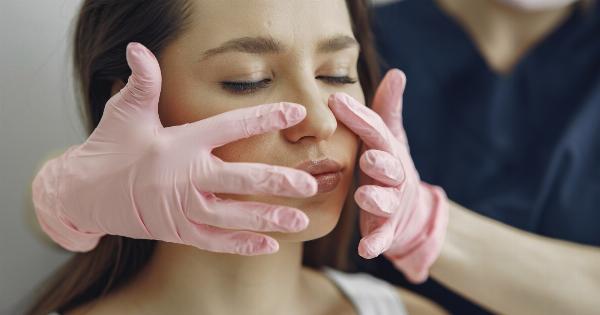Many of us have a sweet tooth and enjoy indulging in sugary treats. However, while these treats may be satisfying our cravings, they can also have unexpected effects on our skin.
Sugar has long been known to have negative impacts on overall health, including contributing to obesity, diabetes, and heart disease. But did you know that it can also wreak havoc on your skin?.
Sugar and Aging
One of the most surprising effects of sugar on your skin is its connection to premature aging. When we consume excess sugar, it can lead to a process called glycation, where sugar molecules attach themselves to proteins in our bodies.
This process forms harmful molecules called advanced glycation end products (AGEs), which can damage collagen and elastin, two proteins crucial for maintaining youthful and firm skin.
As the collagen and elastin fibers break down, our skin becomes less elastic and starts to sag. Fine lines and wrinkles become more pronounced, and our complexion loses its youthful glow.
Furthermore, the production of new collagen and elastin fibers decreases, making it harder for the skin to repair itself and maintain its elasticity.
Sugar and Acne
Another surprising effect of sugar on our skin is its contribution to acne breakouts. When we consume sugary foods, our blood sugar levels rapidly increase.
This sudden spike in blood sugar triggers a release of insulin, leading to a chain reaction that increases inflammation in the body.
Inflammation is a significant factor in the development of acne. It stimulates the production of sebum, an oily substance that can clog pores and create an ideal environment for acne-causing bacteria to thrive.
Additionally, the increased production of sebum can lead to a condition called seborrhea, where the skin becomes excessively oily.
Moreover, sugar consumption has been linked to hormonal imbalances, particularly elevated levels of androgens. These hormones can overstimulate the sebaceous glands, causing them to produce more sebum, further exacerbating acne breakouts.
Sugar and Skin Sensitivity
Sugar can also affect the overall sensitivity of your skin. When we consume excessive amounts of sugar, it can lead to a spike in insulin-like growth factor 1 (IGF-1) levels.
IGF-1 promotes the production of androgens, which are hormones that influence oil production and inflammation in the skin. Elevated levels of IGF-1 can make the skin more prone to redness, irritation, and sensitivity.
Furthermore, sugar consumption can weaken the skin’s natural barrier function. A healthy skin barrier keeps moisture locked in and protects against external irritants.
However, excessive sugar consumption can result in a compromised skin barrier, making it more vulnerable to dryness, irritation, and environmental damage.
Sugar and Skin Conditions
While sugar may not directly cause certain skin conditions, it can exacerbate them. Individuals with existing conditions such as eczema, psoriasis, or rosacea may notice an increase in symptoms when consuming excessive amounts of sugar.
This can be attributed to the inflammatory response triggered by high sugar intake.
Moreover, sugar consumption can lead to imbalances in the gut microbiome, which plays a significant role in the health and appearance of our skin.
Dysbiosis, an imbalance in the gut bacteria, can potentially worsen existing skin conditions or lead to the development of new ones.
Minimizing the Effects of Sugar on Your Skin
While completely avoiding sugar may be challenging, there are several ways to minimize its effects on your skin:.
Moderation is Key:
Avoid excessive consumption of sugary treats and opt for healthier alternatives whenever possible. Gradually reduce your sugar intake, allowing your taste buds to adjust over time.
Read Labels:
Be mindful of hidden sugars in processed foods and beverages. Familiarize yourself with different names for sugar, such as high fructose corn syrup, sucrose, and dextrose, to make informed choices.
Focus on a Balanced Diet:
Emphasize a diet rich in fresh fruits and vegetables, lean proteins, and whole grains. These nutrient-dense foods can support healthy skin and provide essential vitamins and minerals.
Stay Hydrated:
Drinking an adequate amount of water helps flush out toxins and keeps the skin hydrated from within. Hydrated skin is less prone to dryness, irritation, and inflammation.
Consider Supplements:
Incorporating supplements like omega-3 fatty acids, collagen peptides, and vitamins A, C, and E can support skin health and minimize the impact of sugar on your skin.
Practice Good Skincare:
Establish a skincare routine that includes gentle cleansers, moisturizers, and sunscreen. Regular exfoliation can also help remove dead skin cells and promote cell turnover.
Manage Stress:
Stress can aggravate skin conditions and impair the skin’s natural healing process. Incorporate stress management techniques like meditation, exercise, and sufficient rest into your daily routine.
Conclusion
The effects of sugar on our skin can be surprising and detrimental.
From premature aging and acne breakouts to increased skin sensitivity and exacerbation of existing skin conditions, excessive sugar consumption can have a profound impact on our skin health. By understanding these effects and adopting healthier habits, we can minimize the damage caused by sugar and help our skin maintain its natural radiance and vitality.






























